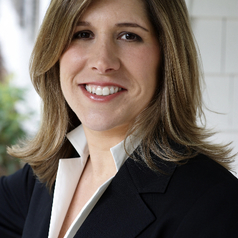
Joan Cook
Associate Professor of Psychiatry, Yale University
Dr. Joan Cook is an Associate Professor in the Yale School of Medicine, Department of Psychiatry and a 2015 Public Voices Fellow at The Op-Ed Project.
She has numerous publications in the traumatic stress and geriatric mental health fields, including scientific papers on the phenomenology, assessment and treatment of older adult trauma survivors.
Dr. Cook has worked clinically with a range of trauma survivors, including combat veterans and former prisoners of war, men and women who have been physically and sexually assaulted in childhood and adulthood, and survivors of the World Trade Center bombing.
She is funded by the National Institute of Mental Health to study the implementation of evidence-based psychotherapies for PTSD in community settings.
Less ![]()
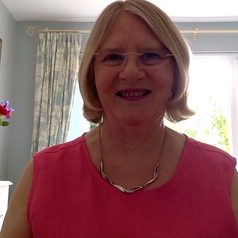
Joan Mowat
Reader in the School of Education, University of Strathclyde
Dr Joan Mowat is a Reader at the Strathclyde Institute of Education. Joan’s research interests focus primarily on inclusion, social, emotional and behavioural needs, and the wellbeing of children and young people (particularly those who are disadvantaged through poverty or disability), but she has also published in the fields of leadership, policy and transitions. She has acted as an expert witness to the Scottish Parliament and is a member of the Cross-Party Group for Children and Young People. She is author of ‘Building Community to Create Equitable, Inclusive and Compassionate Schools through Relational Approaches.’
Less ![]()

Joan Tumblety
Associate Professor of French History, University of Southampton
I am a historian of modern France, specialising in the entwined cultural, gender and political histories of the twentieth century. Although I began my career focusing on the cultural and gender politics of the far right, my current research draws on perspectives from the history of health and medicine to explore natural health cures and the emergence of self-help across the early to mid-twentieth century period.
I first explored the interrelation of gender and politics in my doctoral research on fascist writers during the Occupation of France, 1940-1944. I was struck by how systematically parts of the collaborationist press filtered and refined their political and historical views through notions of masculinity and femininity. I expanded this engagement with masculinity by exploring the imagined connection between national decline and male physical failure in a monograph about the world of French physical culture, 1918-1945. My doctoral studies also nurtured a scholarly interest in the instrumentalization of memory, and this resulted in the publication of an edited collection for Routledge in 2013.
Less ![]()
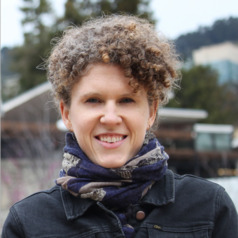
Joan A. Casey
Assistant Professor of Environmental and Occupational Health Sciences, University of Washington
Joan A. Casey received her doctoral degree from the Department of Environmental Health Sciences at Johns Hopkins Bloomberg School of Public Health in 2014. Dr. Casey is an environmental epidemiologist who focuses on environmental health, environmental justice, and sustainability. Her research uses electronic health records and spatial statistics to study the relationship between emerging environmental exposures and population health. She also considers vulnerable populations and the implications of health disparities, particularly in an era of climate change. Dr. Casey investigates a range of exposures including unconventional natural gas and oil development, coal-fired power plants, and concentrated animal feeding operations. Dr. Casey also holds a BS in Biological and Environmental Engineering from Cornell University and an MA in Applied Physiology from Teachers College at Columbia University.
Less ![]()
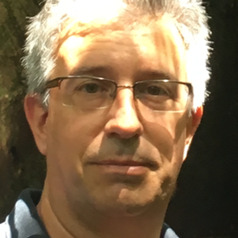
Joan Albert Arnaiz Gargallo
Institut d’Investigacions Biomèdiques August Pi Sunyer - Hospital Clínic Barcelona / IDIBAPS. Profesor Agregado de Farmacología Clínica, Universitat de Barcelona
Joan Albert Arnaiz Gargallo es Doctor en Medicina y especialista en Farmacología Clínica. Su actividad profesional se centra principalmente en la investigación clínica con medicamentos, la selección de fármacos y la docencia de grado y posgrado en las áreas de Farmacología, metodología y terapéutica. Ha publicado artículos originales y capítulos de libros sobre ensayos clínicos, farmacología clínica y seguridad de los medicamentos. Es Profesor Agregado en la Universidad de Barcelona y Consultor Sénior en el Hospital Clínic de Barcelona.
Less ![]()
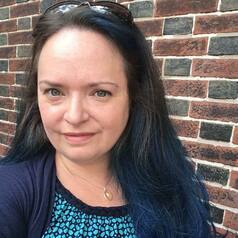
Joan Maya Mazelis
Associate Professor of Sociology, Rutgers University
Dr. Mazelis is an Associate Professor of Sociology in the Department of Sociology, Anthropology and Criminal Justice, the Director of the Gender Studies Program at Rutgers University-Camden, a Faculty Affiliate at the University of Wisconsin’s Institute for Research on Poverty, a member of the Council on Contemporary Families and of the Scholars Strategy Network. Dr. Mazelis received her B.A. from Binghamton University of the State University of New York and her M.A. and her Ph.D. in Sociology from the University of Pennsylvania.
Dr. Mazelis is passionate about using research to advance public understandings of important issues and amplifying the voices of those in poverty. In addition to her peer-reviewed scholarship, she is an award-winning public sociologist; she is a member of the inaugural class of 2022 Public Sociology Award recipients from the Eastern Sociological Society and the winner of the 2022 Michael Harrington Award from The Poverty, Class, & Inequality Division of the Society for the Study of Social Problems. She has authored blog posts and brief reports for The Society Pages, the Council on Contemporary Families, and the Scholars Strategy Network. She has been a frequent source for journalists writing about poverty and related issues, and has been quoted as an expert by outlets such as The 19th, WalletHub, Today.com, NBC10 Philadelphia, The Philadelphia Inquirer, and Politifact. Dr. Mazelis has been a guest on NPR’s The 1a, and her op-eds have appeared in The Philadelphia Inquirer, The Hill, and The Washington Post.
Less ![]()
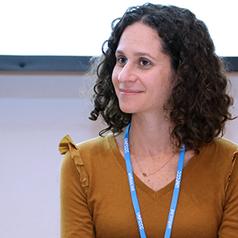
Joana Setzer
Associate Professorial Research Fellow, Grantham Research Institute on Climate Change and the Environment, London School of Economics and Political Science
Joana Setzer is an Associate Professorial Research Fellow at the Grantham Research Institute on Climate Change and the Environment, at the London School of Economics and Political Science (LSE). Her main areas of expertise are climate litigation and global environmental governance.
Since 2013 she has been involved, and since 2020 she leads the Grantham Research Institute’s Climate Change Laws of the World project – the most comprehensive global resource on climate policy and legislation.
Joana served as a Contributing Author for Working Group 3 of the Intergovernmental Panel on Climate Change’s Sixth Assessment Review (IPCC AR6). She regularly advises a range of international, governments and non-governmental organisations. She is a frequent speaker at academic and non-academic events, and a regular source for media outlets. Joana is also co-Chair of the Climate Accountability working group of the Climate Social Science Network.
Less ![]()
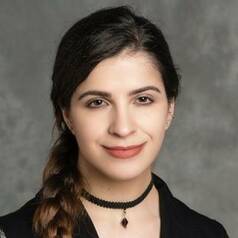
Joana Jacob Ramalho
Lecturer (Teaching), Faculty of Arts & Humanities, UCL
I am an interdisciplinary scholar working across the fields of screen media, cultural studies, literature and language. My research focuses on the Gothic in its many iterations across media, national contexts and historical moments. I have additional research interests in: Film (esp. classical Hollywood cinema, noir and musicals); alternative entertainment (particularly cabaret, burlesque, circus and 'freak shows'); gender politics in film, television and music; intermediality and generic hybridity; representations of mental illness in fiction; political in/correctness, and radical humour; Victorianism (esp. visual culture and mourning practices); and music (esp. film and stage musicals, and musical moments in non-musical films).
My monograph, Memory and the Gothic Aesthetic in Film (Palgrave Macmillan, forthcoming in 2024), analyses the Gothic as centrally concerned with memory and informed by the travels of exile and émigré filmmakers.
I have published on haptic motifs and what I call ‘sensory contagion’ in gothic cinema; thing theory and creepy dolls in gothic and horror films; portraits in 1940s psychological thrillers; gender politics in postmillennial gothic musicals; sexsationalist feminism; intermediality and radical humour in the repertoire of British punk cabaret trio The Tiger Lillies; and the queer failure and mock heroism of King Ludwig II of Bavaria. I have presented my work at several international conferences in the UK, Canada, Denmark, New Zealand, Austria and Portugal and am a peer reviewer for Fantastika Journal and Studies in the Fantastic
I have undertaken UG and MA dissertation supervision in Comparative Literature, Film Studies, Language and Culture (BALC), and Translation Studies on a range of topics including gothic cinema; Francoist cinema; Almada Negreiros; Beyoncé's Lemonade; film and stage musicals; Gothic and Romantic literature and poetry; melancholy (Heimweh) and disenchantment (Entzauberung).
I am currently a joint supervisor to two doctoral candidates working towards a PhD in Creative Critical Writing (with Prof Jakob Stougaard-Nielsen) and a PhD in Geography (with Dr James Kneale).
I welcome proposals for UG, MA and PhD projects that focus on or overlap with any of the research specialisms above.
Less ![]()
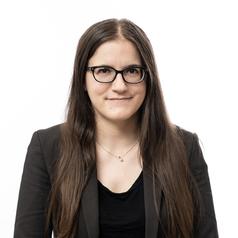
Joanie Bouchard
Assistant Professor of Political Science, Université de Sherbrooke
-Diversity and discrimination
-Electoral Behavior
-Political Psychology
-Canadian and Quebec politics
-Quantitative methods
-Experimental methods
-Mixed methods
Affiliated with:
School of Applied Politics, Université de Sherbrooke
Center for the Study of Democratic Citizenship (CSDC)
Réseau québécois en études féministes (RÉQEF)
PolitiCo, Université Laval
Network for Economic and Social Trends (NEST), Western University
Less ![]()
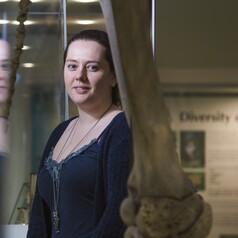
Joanna Baker
Postdoctoral Researcher in Evolutionary Biology, University of Reading
I am currently a Postdoctoral Researcher at the University of Reading funded by the Leverhulme Trust. My interests are primarily involved in macro-evolutionary biology, particularly involving large-scale evolutionary trends and patterns. I am also interested in looking at the effects of incorporating extinct and extant diversity into studies of evolutionary biology and ecology.
Less ![]()
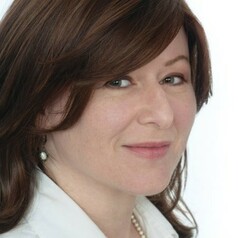
Joanna Dermenjian
Research Fellow, Modern Literature and Culture Research Centre, Toronto Metropolitan University
As a Research Fellow at the Modern Literature and Culture Research Centre at Toronto Metropolitan University, Joanna Dermenjian explores Canadian women’s cultural legacy focusing on the intersection of world wars and women’s volunteer labour.
Less ![]()

Joanna Fong-Isariyawongse
Associate Professor of Neurology, University of Pittsburgh
Joanna Fong-Isariyawongse, MD, joined the Department of Neurology in September 2013. Prior to that, she worked at Cleveland Clinic as a clinical assistant professor in the Department of Neurology, specializing in Epilepsy and Sleep Medicine. Her expertise lies in the medical management of patients with epilepsy, including those with medically refractory epilepsy seeking epilepsy surgical evaluation. She is also an expert in critical care EEG and has overseen the continuous critical care EEG monitoring service across multiple UPMC hospital systems, including UPMC Presbyterian, Shadyside, Mercy, Magee Women, Passavant, Altoona, and East.
In addition to her specialization in epilepsy and EEG, Dr. Fong-Isariyawongse possesses exceptional knowledge and clinical skills in sleep medicine, addressing conditions such as sleep apnea, insomnia, and circadian rhythmic sleep disorders.
Beyond her clinical work, Dr. Fong-Isariyawongse is dedicated to sleep health advocacy. With her extensive experience in sleep medicine and neurology, she understands the significant impact of sleep on physical well-being, cognitive function, emotional resilience, and overall quality of life. She is deeply committed to raising awareness and advocating for the importance of sleep health among patients, students, colleagues, and the wider community. Dr. Fong-Isariyawongse excels at bridging the gap between the medical community and the general public, translating complex scientific concepts into accessible language to resonate with diverse audiences. Her engaging communication style and passion for education make her an influential advocate for promoting healthy sleep habits and dispelling myths surrounding sleep health.
Recognized for her exceptional patient care, Dr. Fong-Isariyawongse was honored with UPMC's Excellence in Patient Experience Award in 2020, placing her among the select group of 48 recipients from 7,600 physicians and advanced practice providers in the system. Pittsburgh Magazine has also named her a Best Doctor every year since 2019, further acknowledging her expertise and dedication.
Education & Training:
Fellow, Cleveland Clinic - Cleveland, Ohio, Sleep Medicine Fellowship
Fellow, Cleveland Clinic - Cleveland, Ohio, Epilepsy Fellowship
Resident, Cleveland Clinic - Cleveland, Ohio, Neurology
Resident, Cleveland Clinic - Cleveland, Ohio, Preliminary Internal Medicine
MD, The Ohio State University College of Medicine - Columbus, Ohio, Medicine
Less ![]()
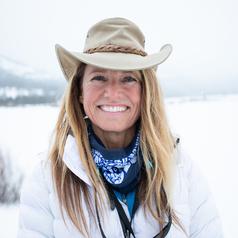
Joanna Lambert
Professor of Environmental Studies and Faculty in Ecology and Evolutionary Biology, University of Colorado Boulder
Joanna has spent her career publishing and teaching about evolution, ecology, and the critical conservation issues impacting wild mammal species interactions and adaptation. Joanna is currently a professor at the University of Colorado – Boulder (CU). Previous to her position at CU, Joanna was a professor at University of Texas, a visiting professor at Duke University, an associate professor at the University of Wisconsin – Madison, an assistant professor at the University of Oregon, and Program Director at the National Science Foundation.
In addition to her teaching and research roles, Joanna Lambert is a scientific advisor to the Rocky Mountain Wolf Project, has served as an advisor to the United Nations Environment Programme, is the co-founder of the Northwest Primate Conservation Society, and is currently serving on the Species Survival Commission of the International Union for the Conservation of Nature (IUCN). She has held numerous editorial positions for journals such as Oecologia, PLoS ONE,Diversity, Integrative Zoology, Tropical Conservation Science, American Journal of Physical Anthropology, American Journal of Primatology, and African Primates.
Joanna’s accolades include receiving the University of Texas Presidential Award for Distinguished Research, the Vilas Associate Award for Research at the University of Wisconsin – Madison, as well as the highest university – wide awards for both research (R.A. Bray Faculty Fellowship for Excellence in Scholarship) and teaching (Ersted “Crystal Apple” Award for Distinguished Teaching) at the University of Oregon. In 2003, she was named Oregon’s Emerald Professor of the Year. She was recently elected a Fellow of the American Association for the Advancement of Science (AAAS) – the largest scientific society in the world (est. 1848) – for her “outstanding contributions to the field of feeding biology” – as well being made a Fellow of the Linnean Society – the world’s oldest society (est. 1788) devoted to the study of natural history and where Charles Darwin first proposed his theory of evolution by natural selection.
Less ![]()
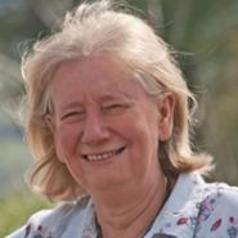
Joanna Mack
Joanna Mack is an Honorary Senior Research Fellow in the School of Policy Studies at the University of Bristol and a Visiting Fellow in the Faculty of Social Sciences at the Open University. She was part of the successful bid team and the Open University's lead for the ESRC-funded, inter-university Poverty and Social Exclusion research project, which ran from 2010 to 2015 and was the largest ever research project in the UK into poverty. In 2012, she set up the Poverty and Social Exclusion website - www.poverty.ac.uk - which has become an important source of information on poverty and social exclusion in the UK and is now extensively used by researchers, educators, students and the general public. She is co-author (with Stewart Lansley) of 'Breadline Britain - the rise of mass poverty' (Onewold, 2015) which draws on thirty years of research in this field.
Until January 2016, she was Head of Video and Audio for the university, overseeing the production of teaching materials. She worked, in particular, on a wide range of new modules for the social science faculty covering social policy, psychology, economics, politics and the environment.
After graduating from Cambridge University, she worked on New Society magazine before moving into broadcast television where she had a long and successful career as a producer/director of factual programmes working ofr first London Weekend Television and then running her own production company, Domino Films. During this period, her films and documentaries won many prestigious awards, including from BAFTA, Royal Television Society, British Film Institute, and British Universities Film and Video Council, and, internationally, from New York International Film and Television Festival, Chicago International Film Festival, San Francisco Festival and the CableAce Awards of North America.
She produced and directed the first Breadline Britain series in 1983 and was the series editor for the second series in the 1990s, both broadcast on the ITV network. For the 1983 series she set up the pioneering research survey behind the series which devised a new approach for measuring poverty based on the public's perceptions of necessities. This methodolog,y which she set out in 'Poor Britain' (1985), has been used by researchers and governments in the UK, the European Union and many other countries from Japan to South Africa.
She also produced and directed Lost Children of the Empire, a ground breaking documentary uncovering the story of child migration from the UK under which children as young a three were shipped to Australia, Canada, New Zealand and the former Southern Rhodesia from the turn of the 20th century up until as the late 1960s. The film's broadcast in the UK and Australia, and the subsequent book of the same name, helped secure the foundation of the Child Migrants Trust and their work supporting families separated by these practices. Two decades later it led to official apologies from the Australian and UK governments.
She has written extensively about poverty and inequality, including for The Guardian, The Scotsman and Tribune. She has regularly been interviewed for radio about her work and has presented at a number of festivals including The South Bank Centre and the Edinburgh Book Festival.
Her books include:
Poor Britain (with Stewart Lansley), George Allen & Unwin, 1983.
London at War (with Steve Humphries), Sidgwick & Jackson, 1985.
A Century of Childhood (with Steve Humphries and Robert Perks), Sidgwick & Jackson, 1988.
The Making of Modern London (with Gavin Weightman, Steve Humphries and John Taylor), Ebury Press, 2007.
Breadline Britain: The Rise of Mass Poverty (with Stewart Lansley), Oneworld, 2015.
Less ![]()
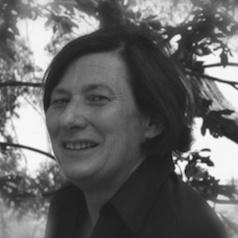
Joanna Mendelssohn
Honorary (Senior Fellow) School of Culture and Communication University of Melbourne. Editor in Chief, Design and Art of Australia Online, The University of Melbourne
Joanna Mendelssohn studied under Bernard Smith as one of the first cohort of honours graduates in Fine Arts at the University of Sydney. She then worked at the Art Gallery of New South Wales, under Daniel Thomas and Tony Tuckson. After some years of working as a curator and then art critic, she joined UNSW where she became the coordinator of the Master of Art Administration, at the College of Fine Arts, UNSW where she also taught Australian art history and writing. On her retirement she was appointed an honorary associate professor.
Her first book was the seminal study on Sydney Long (1979). This was followed by a series of studies on Lionel Lindsay. The research for her book, Lionel Lindsay: an artist and his family (Chatto & Windus, London 1988) was supported by a Literature Board Fellowship. She later revisited the ways in which the mythology of the Lindsay family had been created in her PhD thesis at the University of Sydney, This was reworked and published as Letters & Liars: Norman Lindsay and the Lindsay family (Angus & Robertson 1996). She wrote the catalogue for the 1990 Yellow House exhibition at the Art Gallery of New South Wales and was curator for the touring exhibition Larter Family Values (Casula 2006) and Lionel's Place ( Maitland 2017).
Her most recent book, co-authored with Catherine De Lorenzo, Alison Inglis and Catherine Speck, is Australian Art Exhibitions: Opening our eyes, (T&H 2018). This project is the culmination of an ARC Linkage Project with UNSW, University of Melbourne and University of Adelaide in partnership with the National Gallery of Australia, National Gallery of Victoria, Art Gallery of New South Wales, Art Gallery of South Australia and Museums Australia.
In 2003 Mendelssohn was instrumental in organising the national collaboration of universities and cultural institutions that ensured the future of Joan Kerr's research for The Dictionary of Australian Artists by creating the Dictionary of Australian Artists Online, which has now evolved into Design and Art of Australia Online (aka DAAO). The DAAO is one of the data bases collaborating with the University of Melbourne to create the Australian Cultural Data Engine for Research, Industry and Government.
Less ![]()

Joanna Nadin
Senior Lecturer in Creative Writing, University of Bristol
Dr Joanna Nadin is a former broadcast journalist, Special Adviser to the Prime Minister and government speechwriter. Since leaving politics she's authored more than 90 books for children, teenagers and adults, including the UK bestselling Worst Class in the World series, the Carnegie Medal-nominated Joe All Alone, which is now a BAFTA-winning BBC drama, and Penny Dreadful is Magnet for Disaster, which was shortlisted for the Roald Dahl Funny Prize.
She's a Senior Lecturer in Creative Writing at the University of Bristol, where her research centres on class, identity and the formation of self in fiction, as well as books for younger children celebrating curiosity and non-conformity, often through the device of comedy. She's on the editorial board of Leaf Journal on Writing for Young People.
Less ![]()

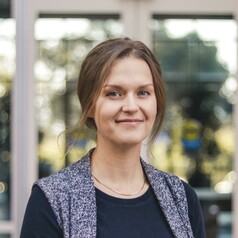
Joanna Peplak
Postdoctoral Scholar, University of California, Irvine
Dr. Joanna Peplak is a Postdoctoral Scholar at the University of California-Irvine. Her research on children's and adolescents' emotional development has three primary foci: (1) how both moral and immoral emotions develop within interpersonal and intergroup contexts, (2) how (im)moral emotions motivate social behavior, and (3) how parents and peers socialize moral emotions and social behaviors.
Less ![]()


Joanna Wang
Senior Lecturer, School of Mathematics and Physical Sciences, University of Technology Sydney
Dr Joanna Wang received her B.Sc. (Advanced Mathematics) with 1st class Honours from the University of Sydney. She completed her Ph.D (University of Sydney) in the area of Financial Econometrics. Joanna joined the School of Mathematical and Physical Sciences at UTS in November 2019.
She was previously a Lecturer in Statistics and a Biostatistics Research Fellow at Transport and Road Safety research group at the University of New South Wales. From 2015 to 2017, she worked as a Postdoctoral Research Fellow in Biostatistics at UTS and the Sax Institute. She provided statistical expertise for a range of different projects within the Analysis for Policy Program through analysing epidemiological, survey and population health data. Joanna has extensive experience in using the 45 and Up Study data, the largest longitudinal study of population aging in the Southern Hemisphere. From 2017 to 2019, she worked as a Research Statistician at the Bureau of Crime Statistics and Research in the Department of Communities and Justice. Joanna undertook rigorous evaluations using various statistics and econometric methods to assess the effectiveness of Justice programs and policy.
Less ![]()
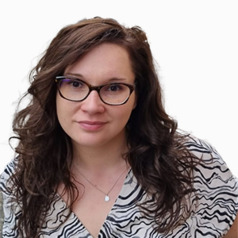
Joanna Witowska
Assistant Professor of Psychology, The Maria Grzegorzewska University
I completed my PhD in psychology and my PhD thesis examined psychological time and cognitive functioning. During my journey I gained research experience in the Institute for Frontier Areas of Psychology and Mental Health, University of Manchester and Oxford Brookes University. My primary research interest lies in investigating psychological time in the context of individual differences and social changes. Currently, I an assistant professor at the Maria Grzegorzewska University in Warsaw and I work on the international project regarding time and digitalisation. I am committed to integrating diverse research methods for deeper insights.
Less ![]()
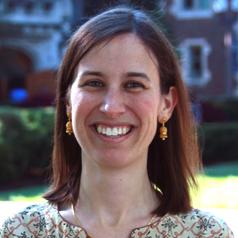
Joanna Dee Das
Associate Professor of Dance, Arts & Sciences at Washington University in St. Louis
Joanna Dee Das received her PhD in History from Columbia University and is now an Associate Professor of Dance in the Performing Arts Department at Washington University in St. Louis. She is also affiliated with Washington University's American Culture Studies Program and the Center for the Study of Race, Ethnicity, and Equity. Her research interests include dance in the African diaspora, musical theater dance, and the politics of performance in the twentieth century. She is the author of Katherine Dunham: Dance and the African Diaspora (Oxford 2017), which won the 2018 de la Torre Bueno Best First Book Award from the Dance Studies Association and an honorable mention Errol Hill Award for outstanding scholarship in African American theatre and performance from the American Society for Theatre Research. She has also published articles in Journal of Urban History, Dance Research Journal, Studies in Musical Theatre, Theatre History Studies, TDR, and ARTS, as well as authored or co-authored book chapters in The Futures of Dance Studies, The Routledge Companion to the Contemporary Musical, and A Critical Companion to the American Stage Musical. Her current book project examines the history of the Branson, Missouri entertainment industry.
Less ![]()
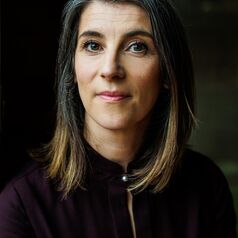
Joanne Banks
Assistant Professor in Inclusive Education, Trinity College Dublin
Dr Joanne Banks is a lecturer and researcher in inclusive education at the School of Education in Trinity College Dublin. Joanne's research interests are in the field of inclusive education and educational inequality. She has published widely on special and inclusive education policy and practice, school exclusion, and student diversity. She is the presenter and author of the Inclusion Dialogue podcast series' and books.
Less ![]()
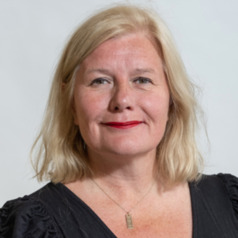
Joanne Berry-Frith
Lecturer in Graphic Design and Illustration, Loughborough University
I have been working as an artist for more than 30 years. I am fascinated by light, colour, lasers, technology and science. My initial curiosity in how artists can work with scientists was piqued in 1998 when I became aware of the SciArt scheme. The ethos of the SciArt scheme encouraged me, as an artist, to seek out Life Scientists to collaborate with because the methods we employ to create images are connected. We both use laser technology (I make laser-cut lightboxes), which requires knowledge of light, optics, and computer visualisation methods, and I am fascinated by how I can use scientific image data innovatively. As a result, since 2010, a central part of my practice has involved contributing to scientific research projects as one of the research team.
I identified a gap in knowledge while working with scientists in labs. There was a lack of understanding between the two disciplines of approaches to imaging and its potential. I wanted to discover if and how an artist-researcher can contribute to new methods of interdisciplinary approaches in advanced imaging and microscopy through collaborative practice. Over the last ten years I have collaborated with Advanced imaging and Microscopy specialists, working with a network of internationally renowned core imaging laboratories in the field of Life Science. My aim is to dismantle silo mentalities so that artist-researchers can collaborate with scientists to create new representations, insights and behavioural change. I implemented a four-stage framework and protocol underpinned by the inclusion of play. Each element helped me negotiate and interpret art and science collaboration in new ways by extending art and scientific methods of visualisation. This led to non-standard representations, technological advancements, and better intellectual and visualisation skills, hence enhancing practice-based research through collaboration. Each element helped me negotiate and interpret art and science collaboration in new ways by extending art and scientific methods of visualisation. I advanced three methods of production: an introspective, digital drawing method using limited tools; data montages where data and documentary footage are explored; and experimental moving image work, integrating documentary film footage and sound. The work I will show at Coningsby Gallery showcases artwork made from three recent collaborations at:
• COMPARE, The Cell Signalling and Pharmacology Group and a minor study at the Molecular and the Cellular Biology Group, School of Life Sciences, Queens Medical School, University of Nottingham.
• Core Research Laboratories Imaging and Analysis Centre, Natural History Museum (NHM), London,
• The Centre for Cellular Imaging (CCI) Sahlgrenska Academy Gothenburg University, Chalmers University and the Biofilms, Research Centre for Bio-interfaces, Malmo University.
High-quality outputs from working with scientists’ include Art–Science Interplay, Coningsby Gallery London (2023), Ars Electronica -Virtual Garden (2020). SCANDEM the Nordic imaging society (2019), Centre for Cellular Imaging (CCI) Sahlgrenska Academy, Gothenburg, Sweden. Biofilms, Research Centre for Bio interfaces at the annual research centre conference (2018), theme ‘Biomarkers’, Malmo University, Sweden. The Centre of Membrane Proteins and Receptors (COMPARE) Compare Conference (2018) and formal launch of COMPARE, Medical School, Queen’s Medical Centre, Nottingham. Decriminalising Ornament: The Pleasures of Pattern Ruskin Gallery (2018) Anglia Ruskin University, Cambridge. The Centre of Membrane Proteins and Receptors (COMPARE) Compare, Conference (2017), Nottingham University Conference Centre. Light it Up: Brains, Psychosis, Neuroimaging & Us a collaboration with the Neuro Translational Imaging Department, Nottingham University to create Brain Container, Blackpool Illuminations (2017, 2016, 2015). Hijacking Natural Systems funded by Wellcome Trust, ACE, Derby City Council and Derby Museum & Arts Gallery (2012). This was a highly successful project nominated by Nottingham University for The Times Higher Education Award and cited by the Wellcome Trust as an exemplar of a successful Arts and Engagement project. Artwork from this project was featured in the BBC4 TV series The Beauty of Anatomy (2014, 2017) presented by Dr Adam Rutherford. Residencies include Florence Trust, London, Natural History Museum, London.
Publications include Berry, J. (2018) ‘Art-data visualisation created from scientific image data from different imaging laboratories to help and influence how they are visually communicated and disseminated’, in a Big Data in the Arts and Humanities: Theory and Practice, eds D. Schiuma and D. Carlucci D. (2018), CRC Press - Taylor & Francis Group. This places my research in the field of Big Data. It is a 3-star REF (Research Excellence Framework) output that has elevated my research status.
Berry, J. (2017) Art made from live scientific images to help and influence how they are visually communicated and distributed. Editors Kung, C., Lam, E., Lee. Y. 2017. Cumulus Working Papers, Cumulus Hong Kong Design for Everything Copyright © 2017 Hong Kong Design Institute and Cumulus International Association of Universities and Colleges of Art, Design and Media
Berry, J. (2016) Still and static digital representations made from scientific images, The Association of Illustrators, London. Available at: http://theaoi.com/varoom-mag/article/.
Berry, J. (2015) Art made from live scientific images to help and influence how they are visually communicated and distributed. VAROOMLAB VISIONARIES – SCIENTIFIC IMAGES Available at: https://theaoi.com/2015/11/17/v31-varoomlab-visionaries-scientific-images/.
Berry, J, and Robinson, A.(2011) Drawn in light: Jo Berry’s ‘Hijacking Natural Systems’. Buxton, England, Andrew Robinson (self-published) funded by the Wellcome Trust and Zeiss.de. Available at: http://www. Shura.shu.ac.uk/5218/ and http://www.blurb.com/bookstore/detail/2361208
I exhibit regularly and widely throughout the Country and Internationally with pieces in the Victoria & Albert Museum (V&A), Arts Council England (ACE) East Midland Collections, Nottingham University Medical School and Zeiss, Munich, Germany. Residencies include the Florence Trust Studios, London, the Natural History Museum, London, the Lakeside Arts Centre, Nottingham University. Public commissions include Blackpool Illuminations, Redesign of five 1938 Fluted Pylons for 100th Anniversary of the Illuminations (2012), Millfield Sculpture Commission (2011), Derbyshire Moorlands (2010), Sheffield Galleries and Museums Trust (2008), New Shetland Museum & Archives (2007). I have acquired highly transferable skills gaining a national reputation as a leader in Illustration research by celebrating its fundamental principles and practices aided by an extensive network of contacts, activity and experience. Undertaking teaching and scholarship projects of national and international significance linked to professional bodies and successful funding bids adding to my professional development. I currently work as a Lecturer in Illustration and Graphic Design at Loughborough University.
Less ![]()
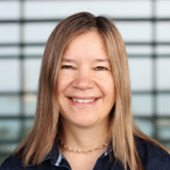
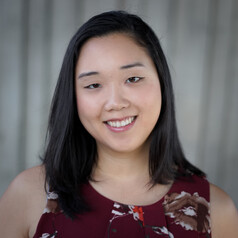
Joanne Park
Assistant Professor, Department of Psychology, Mount Royal University
Dr. Joanne Park is a clinical psychologist and assistant professor at Mount Royal University, in Calgary, Alberta. She completed her PhD from the University of British Columbia, and her predoctoral residency at IWK Health in Halifax. Her research focuses on understanding determinants of parenting, such as parental executive functions, psychopathology, and stress. The goal of her research is to identify targets for parenting interventions, and to ultimately improve parent-child relationships and child mental health. Her research has been funded by a CIHR Postdoctoral Fellowship.
Clinically, Dr. Park works primarily with children, adolescents and their families and provides Cognitive Behavioural Therapy and Behavioural Therapy to address anxiety, selective mutism, OCD, depression, and difficulties with emotion regulation, as well as parent-focused behavioural treatments for children with ADHD and behavioural issues. She also provides psycho-educational assessments for children and adolescents and has received specialized training in Dialectical Behaviour Therapy for both adolescents and adults.
Less ![]()
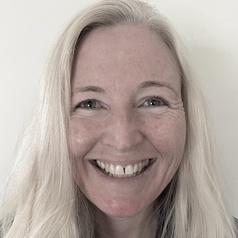
Joanne Quick
Senior Lecturer in Literacy, Australian Catholic University
Joanne Quick is a Senior Lecturer in Literacy in the Faculty of Education and Arts at Australian Catholic University in New South Wales, Australia. Her teaching focusses on developing strong and effective pre-service teacher programs in literacy education. Her research engages with and for students with literacy difficulties to explore interventions, assessments, and longitudinal growth. She previously taught in primary schools in the United Kingdom, New Zealand, and Australia in classroom and intervention settings.
Less ![]()
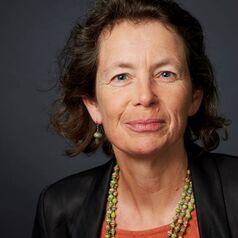
Joanne Spangaro
Professor of Social Work, University of Wollongong
After graduating as a social worker Jo Spangaro worked for many years with people impacted by sexual and domestic violence, before moving into the policy arena. Since completing her PhD on domestic violence, she has researched interventions to address sexual and domestic violence both in Australia and internationally
Less ![]()
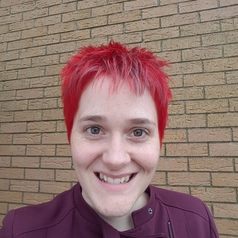
Joanne Welton
Lecturer in Biomedical Sciences, Cardiff Metropolitan University
Teaching
I teach on the MSc in Biomedical Sciences course from data analysis to medical biochemistry. I also teach on the BMS BSc course.
Research
I consider my research background as cell biologist and biochemist, with my research interests centering on exploring the potential of extracellular vesicles (EVs), particularly exosomes, as a possible source of biomarkers for disease.
Exosomes are nanometre sized vesicles formed in the endocytic pathway within multivesicular bodies (MVBs). Upon fusion of the MVB with the cell membrane the exosomes contained within are released into the extracellular environment. These exosomes contain proteins, mRNA, miRNA and DNA from the secreting cell and are often enriched with proteins associated with disease, inflammation, and/or cellular stress. This makes them a potential source of multiple biomarkers for diseases, which can be obtained by minimally invasive means (from biofluids such as plasma and urine).
Exosomes as biomarkers for disease (2006-2010; 2013-present)
My most recent work has involved developing methods for the isolation of EVs from biological fluids and standardising their analysis for quality assurance. Once the isolation methodologies were optimised the proteome of these biofluid-derived EVs (plasma, urine and cerebrospinal fluid) were examined using a novel aptamer based protein arrays and analysed in silico through the use of the statistics package R. These methodologies have been used in the context of prostate cancer and multiple sclerosis biomarker discovery pilot studies. These two projects have shown the potential of both novel isolation methods for exosomes and protein analysis have the potential to identify novel disease biomarkers in follow-up studies.
Immunology Research (2011-2013)
Previous research has looked at the phenotype of peripheral blood mononuclear cells and plasma pro-inflammatory cytokines with respect to the acute phase response (APR) of osteoporosis patients and breast cancer patients undergoing aminobisphosphonate (nBP) treatment. We identified that peripheral γδ T cells and Monocytes became rapidly activated and ultimately determines the clinical severity of the APR in nBP naïve osteoporosis patients. The findings of this study may have diagnostic and prognostic implications for patients with and without malignancy as well as relevance for Vγ9/Vδ2 T-cell based immunotherapy. We also undertook a comprehensive meta-analysis of 15 randomized clinical trials patients on adjuvant therapy for breast cancer with zoledronate, identifying a significant overall survival benefit with zoledronate treatment. These new findings supported the call for zoledronate to be considered as a new standard of care in adjuvant breast cancer therapy.
Less ![]()
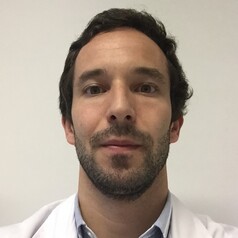
João Lino
PhD Candidate, Medical Sciences, Universidade do Porto
João has a degree in medicine from the Faculty of Medicine of Lisbon (2007). He is currently a PhD student at the Faculty of Medical Sciences Abel Salazar, since 2015, researching autoinflation as alternative in the treatment of Otitis Media with Effusion (OME)
He is a specialist in Otorhinolaryngology and Head and Neck Surgery at the Hospital de Santo António since 2014. Area of sub specialization: Ear pathology and auditory rehabilitation. Joao is also a coordinator of the Cochlear Implants Team at CHUPorto (National Reference Center), since 2018. And a visiting Professor in School of Medicine and Biomedical Sciences - Porto since 2014 and ENT Coordinator since 2022.
Less ![]()
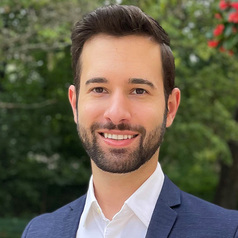
João Marinotti
Associate Professor of Law, Indiana University
João Marinotti is an Associate Professor of Law at Indiana University Maurer School of Law, an Affiliated Fellow at the Yale Law School Information Society Project, a Fellow at Indiana University's Center for Intellectual Property Research. His prior affiliations include the Center for Quantum Networks and the Harvard Law School Project on the Foundations of Private Law.
Less ![]()

João Marcos Azevedo Correia de Souza
MetOcean Solutions Science Manager of the Research and Development Team. Moana Project Science Lead, MetService — Te Ratonga Tirorangi
Physical oceanographer with a wide range of interests, using both numerical models and observations to understand the main processes driving the ocean dynamics and improving its predictability. I am currently the Science Manager of the MetOcean Research and Development Team, at Metocean Solutions - part of the MetService in New Zealand.
Less ![]()
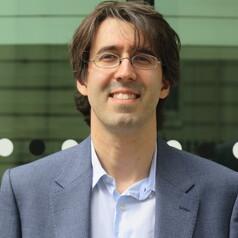
Joao Pedro de Magalhaes
Chair of Molecular Biogerontology, University of Birmingham
Ageing has a profound impact on human society and modern medicine, yet it remains a major puzzle of biology. The goal of my work is to help understand the genetic, cellular, and molecular mechanisms of ageing. In the long term, I would like my work to help ameliorate age-related diseases and preserve health. No other biomedical field has so much potential to improve human health as research on the basic mechanisms of ageing. Please see our lab website for further details about our work and publications (https://rejuvenomicslab.com).
My TEDx talk is also a nice summary of the field of ageing:
https://www.youtube.com/watch?v=GrLgYhtoBXA
Less ![]()
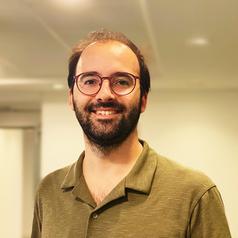
João V. Ferreira
Lecturer in Economics, University of Southampton
I am a Lecturer in Economics and founder & co-director of the Centre for Behavioural Experimental Action & Research (C-BEAR) at the University of Southampton.
My main research interests are in behavioural & experimental economics, public economics, political economy, social choice theory, business ethics, and economic philosophy. I often write about topics related to inequality, taxation, democratic institutions, and freedom of choice.
Less ![]()
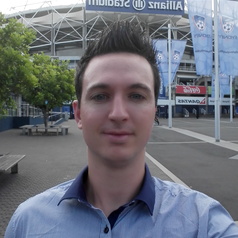
Job Fransen
Lecturer in Skill Acquisition and Motor Control, University of Technology Sydney
I have a PhD in Motor Control and Development where I researched the role motor competence could play in the development of successful sports participation in children. My research interests are in talent identification and development, skill acquisition, motor control and motor development. I'm currently the principal researcher on various projects in talent identification, with a focus on decision-making and perceptual-cognitive skill.
Less ![]()
- Market Data























